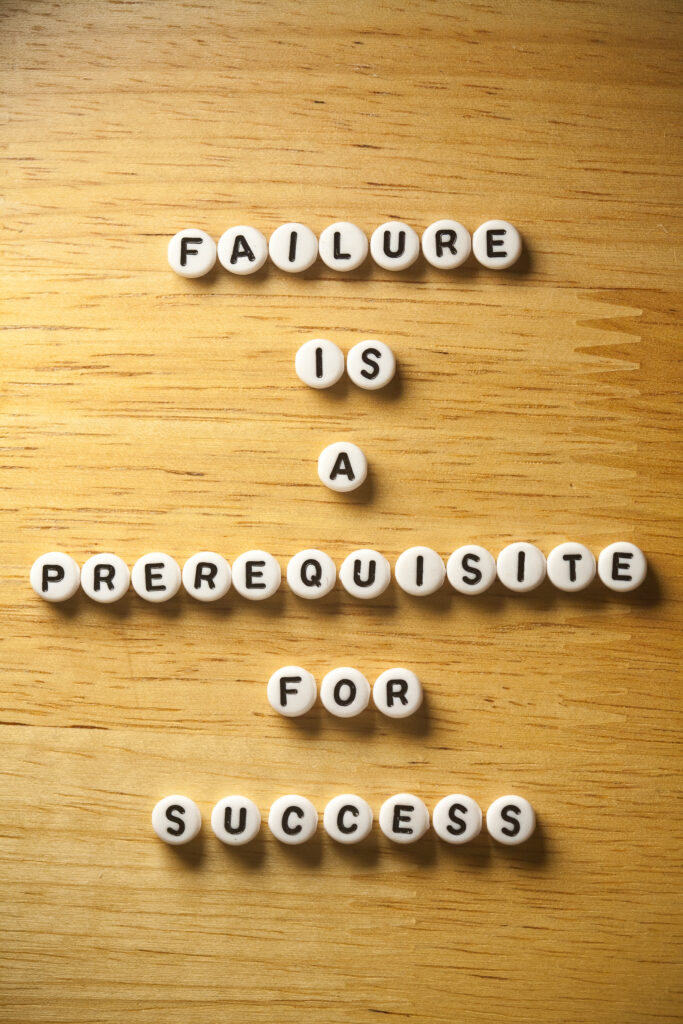I’ve had my fair share of trials and tribulations when it comes to career development. After years of self-reflection, and hard work, I finally found the key to unlocking my full potential. I want to share this knowledge with you, to help you break free from the shackles holding back your career development.
Today, I will share my story and some invaluable lessons that have transformed my life. With the right mindset and tools, I believe you can reach greater heights in your career, too.
Step 1: Facing the Fear of Failure

One of the most significant barriers to my career development was the fear of failure. I often had to create content that could potentially be seen by thousands or even millions of people. The pressure to impress my readers and maintain a positive image for my brand was enormous.
But, what I discovered is that failure is an integral part of growth. We must embrace it, learn from it, and use it as a catalyst for self-improvement.
Tip 1: Reframe failure as a learning experience.
Failure can be your most powerful teacher. Whenever you encounter setbacks, analyze what went wrong and use that information to make improvements.
Tip 2: Seek constructive feedback.
Constructive feedback is vital to personal and professional growth. Don’t shy away from asking for it, and be open to receiving it from colleagues, mentors, and managers.
Step 2: Building a Strong Network
As an SEO expert, I know that links between websites play a crucial role in improving search engine rankings. The same applies to networking in the professional world – connections can open doors and create opportunities.
Tip 3: Attend industry events and conferences.
These gatherings are great places to meet like-minded professionals, exchange ideas, and learn about the latest trends in your field.
Tip 4: Utilize social media platforms like LinkedIn.
Regularly update your profile, share your accomplishments, and engage with content posted by others in your network. This can help increase your visibility and credibility in your industry.
Step 3: Setting SMART Goals
Throughout my career, I have found that setting Specific, Measurable, Achievable, Relevant, and Time-bound (SMART) goals has helped me stay focused and motivated.
Tip 5: Break big goals into smaller, manageable tasks.
By breaking down your objectives into smaller tasks, you can track your progress and maintain momentum as you work towards your ultimate goals. Don’t forget to enjoy the journey.
Tip 6: Regularly review and adjust your goals.
Your priorities and circumstances may change over time, so it’s essential to reassess your goals periodically and make adjustments as needed.
Step 4: Overcoming Procrastination and Time Management
One of my most common issues has always been procrastination. It is still a daily struggle for me. Learning how to effectively manage my time plays a vital role in my career development.
Tip 7: Prioritize tasks using the Eisenhower Matrix.
Categorize tasks based on their urgency and importance. Focus on tasks that are both urgent and essential, followed by important but not urgent tasks. Delegate or minimize tasks that are urgent but not critical, and eliminate tasks that are neither urgent nor essential.
Tip 8: Use time management techniques like the Pomodoro Technique.
This method involves breaking work into focused intervals, usually 25 minutes, followed by a short break. This can improve productivity and help maintain focus on the task at hand.
Step 5: Cultivating a Growth Mindset
A growth mindset, a concept popularized by psychologist Carol Dweck, involves embracing challenges and learning from setbacks. Adopting a growth mindset can have a profound impact on your career development.
Tip 9: Embrace the power of “yet.”
When faced with a challenge, remind yourself that you may not have mastered it “yet,” but with effort and persistence, you can improve and achieve success.
Tip 10: Practice self-compassion.
Acknowledge that everyone makes mistakes and faces challenges. This can be a steep learning curve for some of us, especially when our upbringing is taken into consideration. Instead of berating yourself for setbacks, offer yourself the same understanding and support you would give to a friend.
Step 6: Continuous Learning and Skill Development
We all know firsthand that industries are constantly evolving. Staying up-to-date with industry trends and improving your skillset is crucial for career development.
Tip 11: Engage in lifelong learning.
Pursue certifications, attend workshops, and enroll in courses relevant to your field. This not only keeps your skills sharp but also demonstrates your commitment to growth to potential employers.
Tip 12: Learn from industry leaders and mentors.
Follow industry thought leaders on social media, read their articles, and seek out mentorship opportunities to gain insights from their experiences and knowledge.
In conclusion, overcoming the barriers holding back your career development requires self-awareness, persistence, and a willingness to learn and grow. By facing your fears, networking, setting SMART goals, managing your time effectively, cultivating a growth mindset, and continuously developing your skills, you can unlock your full potential and thrive in your career.
Remember, the only person holding you back is yourself – so take charge of your professional journey and watch your career soar to new heights.